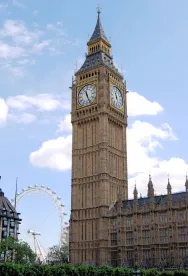Legal professional privilege (“LPP”) has been a feature of the common law for centuries, developed through the public interest in protecting confidentiality of communications between a lawyer and its client. As a concept understood, in one form or another, in many countries around the globe, LPP has become widely enshrined as a fundamental principle to be rigorously upheld in facilitating the proper administration of justice.
LPP, as with many features of the common law, must continually evolve in order to keep pace with the reality of modern day business practice. In reflection of that, the last several years have witnessed a number of important English court decisions concerning the scope of LPP, culminating in the recent English Court of Appeal landmark judgment Director of the Serious Fraud Office v Eurasian Natural Resources Corporation [2018] EWCA Civ 2006 (the “ENRC Appeal”).
Although the ENRC Appeal concerns an investigation by the Serious Fraud Office (the “SFO”) into allegations of fraud, bribery and corruption, it is of much wider application. Along with the other recent cases, it has arguably established the new status quo on the scope and application of LPP in English law.
This article takes a closer look at these recent cases, and provides a summary of where English law now stands on LPP. All court decisions referenced within this article pertain to the English courts.
All court decisions referenced within this article pertain to the English courts.
What is Legal Professional Privilege?
LPP provides a legal right to withhold from disclosure all documents falling within its protection scope. It has two sub-categories: legal advice privilege and litigation privilege.
- Legal advice privilege applies to confidential communications passing between a client and its lawyers, which have come into existence for the dominant purpose of giving or receiving legal advice.
- Litigation privilege applies to confidential communications between a client and its lawyer, or between either of them and a third party. It also applies to documents created by or on behalf of the client or its lawyer. To attract litigation privilege, such communications and documents must be made for the dominant purpose of pending or reasonably contemplated litigation or adversarial proceedings.
The Recent Decisions
The significant cases recently decided by the English courts are:
- Property Alliance Group Limited v the Royal Bank of Scotland plc [2015] EWHC 3187(the “PAG Decision”). Various categories of documents were prepared by RBS’ external lawyers relating to meetings of RBS’ Executive Steering Group (“ESG”). The ESG was a special committee tasked with liaising with RBS' lawyers, and overseeing regulatory investigations in relation to LIBOR misconduct and related litigation. RBS claimed privilege over the documents prepared by its lawyers. The High Court found that information passed by a lawyer or client to the other as part of the continuum aimed at keeping both informed so that advice may be sought and given as required will attract legal advice privilege.
- RBS Rights Issue Litigation [2016] EWHC 3161 (the “RBS Decision”). A group litigation was brought by shareholders in RBS for the recovery of investment losses on the grounds that the prospectus for the rights issue was not accurate or complete. RBS claimed privilege in "transcripts, notes or other records" of interviews conducted by or on behalf of RBS with its employees and ex-employees as part of two internal investigations. The High Court, applying the controversial Court of Appeal judgment Three Rivers District Council v Bank of England (No 5)[2003] EWCA Civ 474 (“Three Rivers (No. 5)”) (discussed further below), held that interviews conducted by RBS’ external lawyers with its employees were not covered by legal advice privilege, as the employees in question did not form part of the "client" for privilege purposes.
- Director of the Serious Fraud Office v Eurasian Natural Resources Corporation [2017] EWHC 1017. This first instance High Court judgment concerned civil proceedings initiated by the SFO against ENRC in 2016. The SFO challenged ENRC's claims to privilege over documents generated by its external lawyers and forensic accountants during ENRC’s internal investigation into whistleblowing accusations of wrongdoing in one of its subsidiaries. In the subsequent ENRC Appeal, it was determined by the Court of Appeal that a criminal prosecution against ENRC was reasonably in contemplation when it initiated its investigation in April 2011. Accordingly, litigation privilege attached to almost all documents over which ENRC asserted privilege protections.
The common thread to these cases is the application of privilege to documents generated in the course of internal investigations conducted by companies against which allegations had been made. Collectively, the respective judgments have further informed, clarified and developed the English law position on both legal advice privilege and litigation privilege. As English law now stands in light of these cases, the key aspects of LPP can be summarised as follows.
Legal Advice Privilege – Who is the Client?
Following the Court of Appeal’s decision in Three Rivers (No 5), determining which members of a corporate entity constitute the “client” for the purposes of legal advice privilege is a threshold issue that has been narrowly interpreted by the courts. That case arose in the context of a litigation brought against the Bank of England after the collapse of the BCCI bank. The claimants sought disclosure of documents prepared in relation to the public inquiry into BCCI’s collapse by the Bank’s employees for its lawyers. Since the Bank had appointed three employees to communicate with the lawyers, the Court of Appeal held that they were “the client” for the purpose of attracting legal advice privilege. Documents prepared by other employees whereas, classed as third parties in these circumstances, were not privileged.
As a result of the Three Rivers (No. 5) findings, the “client” is restricted to a limited group, explicitly or impliedly identified, within a corporate entity who are specifically appointed by the company to request and/or receive legal advice. Communications between the lawyers and anyone else in the organisation would not be privileged, unless litigation privilege applied.
The High Court applied Three Rivers (No. 5) in the RBS Decision, finding it was bound by the Court of Appeal’s determination. However, the Court commented that the determination was controversial and suggested that the Supreme Court, which of course would not be bound to follow Three Rivers (No. 5), might be inclined to adopt a different approach.
Similarly, in the ENRC Appeal, the Court of Appeal remarked that were it possible to depart from Three Rivers (No. 5) on the contentious issue of which employees constitute the “client” for the purposes of invoking legal advice privilege, it would have been in favour of widening the “client” definition scope.
Legal Advice Privilege – What Constitutes Legal Advice?
Legal advice privilege attaches to all communications passing between the client and its lawyer, acting in its professional capacity, in connection with the provision of legal advice relating to the rights, liabilities, obligations or remedies of the client (either under private or public law).
Following the PAG Decision, legal advice privilege will encompass information passed by a lawyer or client to the other as part of a continuum aimed at keeping both informed so that advice may be sought and given as required in the future (even if the communication itself does not contain or request legal advice). There is no need for litigation to be contemplated in order for documents or communications to attract legal advice privilege.
Legal advice privilege does not attach to communications between clients and third parties, or between lawyers and third parties. If the communication is between the lawyer and someone other than the client, it will only be subject to LPP if it satisfies the test for litigation privilege.
Litigation Privilege – What are Adversarial Proceedings?
Adversarial proceedings are a system of justice (encompassing any civil or criminal court, tribunal or arbitral procedures) in which the parties or groups are locked in dispute against one another, and upon whom is imposed the legal burden to find and adduce the requisite evidence to advance their respective cases. In most instances it will not include investigative or inquisitorial proceedings such as, for example, documents produced during the course of compliance due diligence or as part of a public inquiry.
Litigation Privilege – When will Proceedings be Reasonably Contemplated?
The point at which adversarial proceedings will be held to be in reasonable contemplation will turn on the facts and evidence presented in each case. As a general rule, if a company has received legal advice that civil or criminal proceedings are a real and likely possibility (as opposed to one of several possible outcomes), or has appointed legal advisors to carry out an investigation into possible civil or criminal liability, proceedings can be said to be reasonably contemplated.
In respect of the ENRC Appeal, the Court of Appeal concluded that criminal proceedings were reasonably contemplated from the point at which ENRC engaged lawyers to conduct an internal investigation, even though that was significantly earlier than when the SFO opened its own investigation. The Court found that criminal proceedings against ENRC were reasonably in contemplation when it initiated its investigation in April 2011, noting that "the whole sub-text of the relationship between ENRC and the SFO was the possibility, if not the likelihood, of prosecution if the self-reporting process did not result in a civil settlement".
Litigation Privilege – When will Communications be for the Dominant Purpose of Conducting Proceedings?
The 'dominant purpose' test is one of dominance rather than exclusivity. To establish dominance, it is necessary to determine whether the dominant purpose of preparing a document or communication was for adversarial proceedings. As documents will often serve dual or several purposes, the dominant purpose is not always clear. English courts have focused on the purpose of the document at the point in time when the document or communication was initially created to establish the dominant purpose.
The Court of Appeal has held that documents created for the dominant purpose of resisting or settling civil or criminal proceedings will be covered by litigation privilege, even if such proceedings have not yet commenced. For example, in the ENRC Appeal, the need to investigate corruption allegations was construed by the Court of Appeal as a “subset” of the dominant purpose of defending contemplated proceedings. The Court also held in that case that participation and co-operation in an SFO investigation is not a waiver of litigation privilege.
Where to Next?
The LPP doctrine is a fundamental protection against disclosure, invariably replete with high-stakes dependencies. A disputant’s ability to successfully establish that a body of documents is entitled to be privilege cloaked has the potential to dramatically change the outcome of a case. For this reason, issues concerning the scope and application of LPP are often heavily contested and inherently predisposed to interlocutory arguments before the relevant tribunal.
The recent English court decisions have collectively helped to inform, clarify and develop the English legal position on LPP. Evolution is nonetheless unstoppable, and doubtless therefore English law’s LPP doctrine will too continue to evolve in order to keep in step with the prevailing business practices.
Indeed, given the comments of the High Court in the RBS Decision and the Court of Appeal in the ENRC Appeal, the crux question of who actually constitutes the “client” (for the purpose of invoking legal advice privilege protections) is ripe for further appellate litigation. In the latter case, the Court of Appeal opined that it would have departed from Three Rivers (No. 5) had it been a point for it to decide. Even if the SFO does not appeal to the Supreme Court, other parties may feel emboldened by the Court of Appeal’s lamentings and prosecute similar arguments in their own cases. It therefore seems only a matter of time and opportunity before the issue spirals its way up to Supreme Court scrutiny - assuming of course Parliament does not exercise its inherent jurisdiction first.
It is important to bear in mind that the evolution of LPP has taken different routes in jurisdictions across the globe. For example, as made clear by the RBS Decision, documents protected by LPP in the US may not attract equal protection in the UK. In circumstances where a party wishes to ensure that a document or a class of documents will attract LPP, it is important to give careful thought at the outset to the basis on which LPP will be claimed and the structures to put in place to achieve that objective. Where more than one jurisdiction is involved, this can be complex.






 />i
/>i

